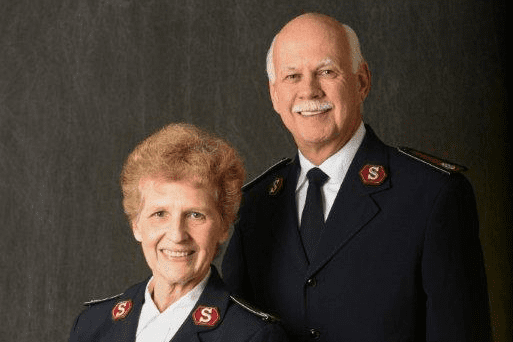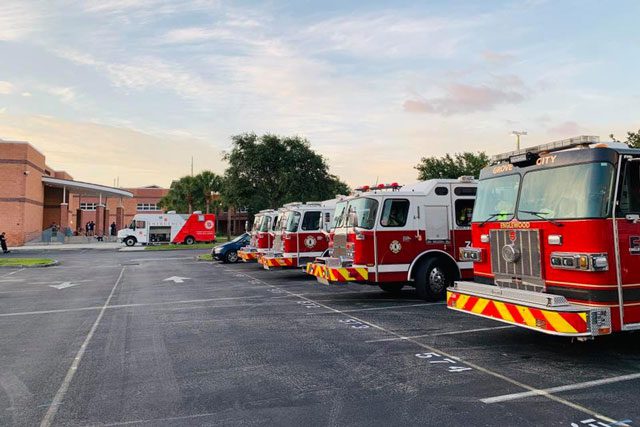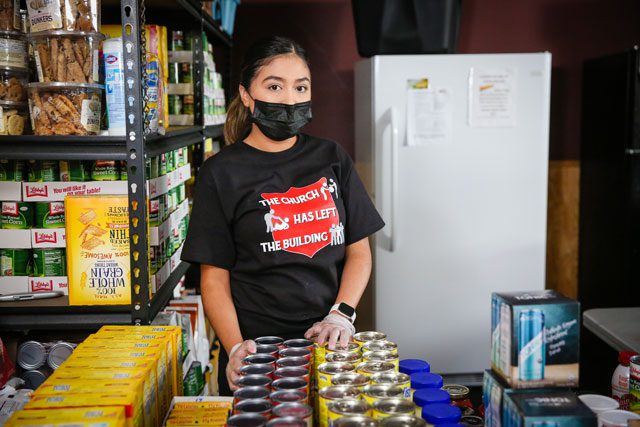‘All the slogans and everything else aside, our focus is on others.’
By Christin Thieme –
After 45 years encompassing 13 moves and some 15 appointments, Commissioners David and Sharron Hudson are packing up their offices one final time. This July, they retire as The Salvation Army’s National Commander and National President for Women’s Ministries.
Those who know them might say their career-long service is marked by one word: Respect. And that’s not by chance.
“My number one core value is respect,” David Hudson said in a War Cry interview as he became the Army’s national leader in 2017. “I believe everyone deserves respect…I would hope that people would say [about my service], ‘He respected me.’… Respect demonstrates care. It demonstrates concern.
“I would hope that they would say that he made a difference. We look for leaders to be people of vision, of decisiveness, of direction, change. Look back and ask, “Who has had the most impact on my life?” he said. “It’s very seldom any of those things. More often than not it is someone who took time, who cared, who was there. I would hope that there would be a number of people that will say I was there for them. That’s the ‘so what’ in my life.”
And there are—too many to list after a simple question posed by this publication: How have the Hudsons impacted you?
Captain Martha Apuan attended her first youth councils under their leadership; she’s now the Corps Officer in Koto-ku, Japan. “They became spiritual guides to many young people, including me,” she said. “Thank you for always loving me.”
While in training, Lt. Kelly Cain said she regularly received personalized emails of encouragement—as did each cadet.
“They were always so thoughtful and caring. It helped to know that we were being prayed for,” she said. “He also gave lectures that were so relatable. He always told us if we were too busy for people, then we were too busy.
“Thank you for showing us the love of Christ,” said Cain, now the Corps Officer of the Riverside (California) Corps.
Captain Tim Brown, Corps Officer in Kingaroy, Australia, said he received a call in his first year of officership one January day from Hudson, simply to thank him for his hard work during the Christmas season. Major Paula Wild, Santa Clara Citadel (California) Corps Officer and Silicon Valley Coordinator, credits the course of her life to the Hudsons’ influence. And Major Gina Halverson was astonished that Hudson flew into a small Southeast Alaskan village during a snowstorm.
“To fly in, have lunch and fly back out, on the same day, in a snowstorm, just to let us know that we matter—this is how I aim to be as an officer,” said Halverson, now Juneau (Alaska) Corps Officer and Alaska State Capital Liaison.
Elizabeth Morales asked Hudson to give the message at her mother’s promotion to Glory service. “Your ministry has influenced too many to count and many know the Lord because of your examples,” she said.
I count myself in this group, too, as I once asked the Hudsons if they would dedicate my baby the next time they were in town. They replied: “Give us a date and we’ll be there.”
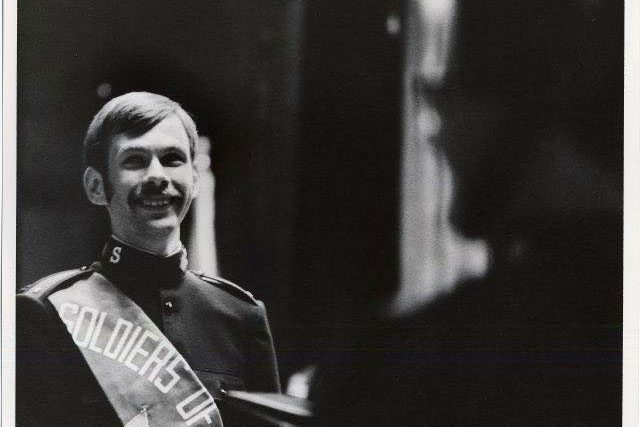
Seeing the individual
That influence extends beyond The Salvation Army, too.
As National Commander, David Hudson has spoken up for the working poor.
“My work at The Salvation Army over the past 40 years has introduced me to some of the hardest-working people I’ve ever met. But many of them are working in low-wage jobs. They face barriers that must be overcome before they can fully enter the labor market,” he wrote in a May 2018 USA Today article. “We need to work together—government, nonprofits and businesses—to improve the quantity and quality of work for all.”
He has spoken up against accusations of discrimination in The Salvation Army.
“So to those who may be confused or are deafened by the noise of ill-informed sentiment, we share our message in hopes that it is heard loud and clear,” he wrote in a November 2019 USA Today article after accusations reemerged online that the organization discriminates against LGBTQ people. “Regardless of sexual or gender identity, orientation, belief or any other factor, we love all, we welcome all.”
And he’s spoken up against immigration separations at the U.S. border.
“Separating children from their parents at the United States border has no place, directly or indirectly, in American immigration policy or practice, and the truth that this has happened already for thousands of mothers, fathers, sons, and daughters, brings us to our knees in prayer for their wellbeing, a speedy return to one another, and an immediate stop of the practice,” read a June 2018 statement issued by National Headquarters.
Why take a stand?
For the Hudsons, it goes back to the parable of the rich man and Lazarus, a beggar who was starving and suffering, in Luke 16:19-31.
“If you look at the judgment that God had on Lazarus, it wasn’t anything he did or didn’t do. It’s just he didn’t even notice. He didn’t even see the injustice that was right there in front of him,” Hudson said. “I think we all kind of get used to living our life, and we don’t think or see anything beyond that sometimes. I think God calls us to see beyond ourselves.”
When he found himself in the role of Salvation Army spokesperson, “I thought, well, I guess I better speak up…and the real reason is because it’s a threat to mission.
“If there is somebody out there who really believes that we will not accept them,” he said, “they won’t come to us for the very services that we provide better than anybody else.”
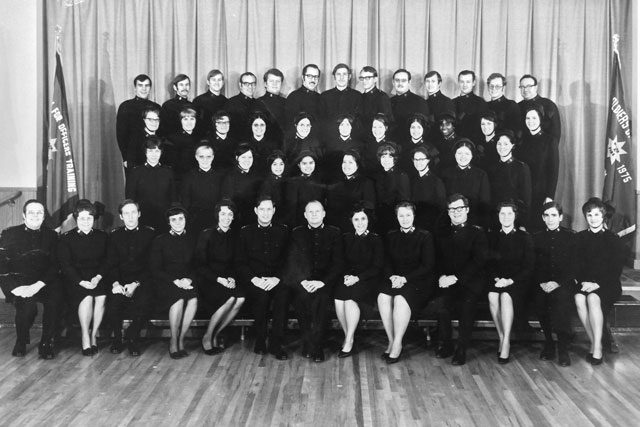
Made in God’s image
Following their commissioning in 1975 with the Soldiers of the Cross Session, the Hudsons served in five corps appointments before divisional appointments, starting as Divisional Youth Secretaries. They led the Hawaiian and Pacific Islands Division before returning to appointments at Western Territorial Headquarters, concluding with Chief Secretary and Territorial Secretary for Women’s Ministries, respectively. The pair moved to NHQ in late 2015.
“I think you have to determine to be faithful,” David Hudson said.
The anecdotes abound of their determination to make people their purpose, just as the officer’s covenant states: “I will live to win souls, and I will not allow anything to turn me aside from seeking their salvation as the first great purpose in my life.”
And so, in any appointment, “we tried to just be there with people,” Sharron Hudson said. “You have to be there with the people you’re serving and believe that he will use you.”
That includes showing an interest in people as individuals made in the image of God, she said, and having an interest in their story—without judgment—and potential.
“Salvation is restoration to a right relationship with God through the work of Jesus Christ,” David Hudson said. “I think the way I try to approach seeking somebody’s salvation is through valuing them, respecting them, caring for them, listening to them.”
Hudson pointed to Jesus’ questioning of Peter, asking three times: “Do you love me?” (John 21:15-17).
“Every one of the responses were very much the same: ‘Feed my sheep. If you love me, take care of my people. Love my people. Take care of their needs,’” he said. “Think about it. Why does somebody follow God? Well, they see God in other people, more times than not.”
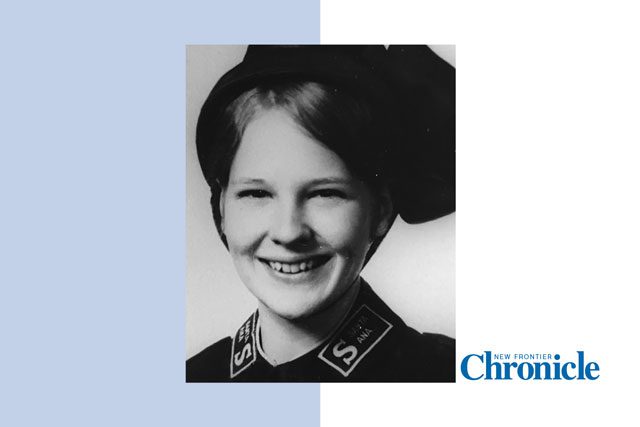
And so respect is mission-critical for The Salvation Army, too.
“I’ve never seen a person change by a program, ever,” Hudson said. “I’ve seen programs lead to relationships, and I’ve seen thousands of people’s lives changed by relationship.”
While the gospel is about reconciliation to God, he said, it is also about restoration.
“It’s about restoring us to be what God desires to be the best in us,” Hudson said. “It’s about unmerited favor with God, his grace that he gives upon us. It’s not about me, it’s about him—and so preaching the gospel and meeting human needs without discrimination is one thing. You could almost take out the ‘and.’ The mission is a continual.”
Sitting in a packed condo, just days away from driving out of Alexandria, Virginia, toward their retirement home in Phoenix, Arizona, the Hudsons challenged The Salvation Army across the U.S. to be the movement that God has called and created it to be.
“Our mission is so powerful when it’s done in its entirety,” he said. “It’s not about the methods. It’s about the motivation. It’s what motivated William Booth to send that one-word telegram: ‘Others.’ That is our motivation. All the slogans and everything else aside, our focus is on others.”
He noted the way the COVID-19 pandemic has brought out the best in The Salvation Army.
“All of a sudden, we don’t worry about, ‘We need to be like them, and like them, and like them,’” he said. “We just run to the people who need us.”
We muster determination. We offer respect. We rely on Christ.
Take time to spend with just you and the Lord, Sharron Hudson said. “The Salvation Army, we’re doers, but we also need to just be with him so that we can be strengthened to serve others.”
To every Salvationist engaged in the mission: “Be yourself,” David Hudson said. “God made you to be you, so be the best you you can be. Invest in your work and invest in others.”








